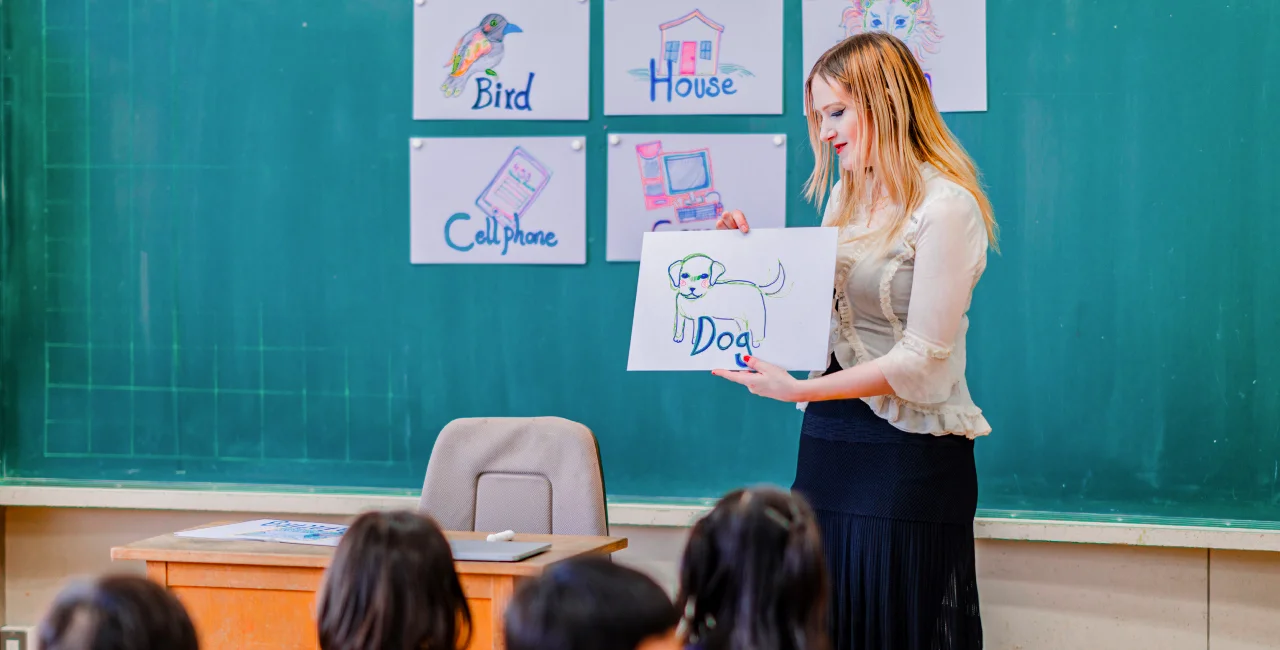Czechia is in the midst of redefining its primary education curriculum, with one key question at the forefront: should English be a compulsory language for all school pupils nationwide? The Czech Ministry of Education is currently dealing with this issue, Deník N reports, and is also in the process of deciding which secondary languages Czech children should learn.
Currently, the vast majority of schools across the country teach English, but learning it is technically not mandatory for everyone. Czech children must also commence their second foreign language studies no later than the eighth grade, with a minimum of three hours of weekly instruction in the final two years of primary school. The selection of a second foreign language is left to the discretion of school principals, who must secure qualified teachers.
Recently, an expert panel from the Ministry of Education proposed that second foreign language instruction should no longer be mandatory, but rather a school option.
Compulsory second foreign language?
Education Minister Mikuláš Bek has not yet reached a final conclusion. Nonetheless, he emphasizes the necessity of a professional dialogue on the matter. Bek leans toward retaining the requirement for a second foreign language, but with a strong focus on achieving a basic A1 proficiency level. This proficiency level would enable students to grasp common expressions, engage in elementary conversations, and navigate straightforward interactions in their chosen language.
Regarding the first foreign language, which is predominantly English in most schools, Bek firmly believes that the world’s lingua franca should remain the standard choice for all students. In terms of the second foreign language, he suggests a shift in school offerings.
Furthermore, Bek seeks to address issues of continuity in secondary education. Often, students start with one language in primary school but find their options limited in high school. Bek stresses the importance of defining clear language pathways to avoid wasting students' time.
Yes to German and French, no to Russian
Instead of allowing schools to make choices based on their capacities, Bek proposes that German and French become the primary options, with Spanish as a potential third choice. He prefers German to be the main second choice owing to Czechia bordering Germany and Austria, as well as large sections of Czech industry being connected with the two countries. This approach aims to ensure that every school offers either German or French, thereby promoting linguistic diversity.
The education minister also noted earlier this week that one in every five children in Czechia learns Russian as a second foreign language. He says that this is mainly in areas where there are not enough teachers of other languages. Bek says he wants to reduce the amount of Russian taught in schools and to de-prioritize it.
On the other hand, representatives from the Czech Ministry of Education have confirmed that some schools in Czechia will teach Ukrainian as an optional language for young Ukrainian children, but only provided that there is enough demand.
The future of foreign language education in Czech primary schools remains uncertain, but Bek's proposals hint at significant changes on the horizon. Ongoing discussions aim to strike a balance between preserving linguistic diversity and ensuring high-quality language education for all Czech students.












 Reading time: 2 minutes
Reading time: 2 minutes 






























